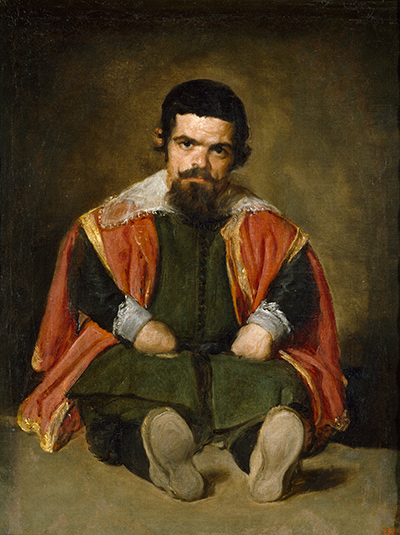Portrait of Sebastian de Morra
The Portrait of Sebastian de Morra is an oil on canvas painting by Diego Velazquez of Sebastian de Morra. Sebastian was a court jester for King Philip IV of Spain.

Painted around 1645 in the Baroque period, and currently on display in the Museo del Prado, Madrid.
Although Velazquez’s’ opinions on the portrait were not documented, it is thought that he felt some empathy towards Sebastian de Morra and the treatment of the court dwarfs. Sebastin de Morra was named by the King and the courtiers, it amused them that the dwarfs had such lavish names and was just another means to ridicule them.
The posing of the portrait also reveals a lot about the feelings towards the court dwarfs; Morra is seated in a clumsy, inelegant position, with no real self confidence shining through.
The foolish attire draws attention to Sebastian’s true size but perhaps his tightly clenched fists may provide some insight into his true feeings. Although Sebastian de Morra was most likely humiliated and not regarded in high esteem, his portrait portrays none of this. His look is fixed and intense, his stare unyielding which speaks to his character.
Instead of coming across as something to laugh at and pity, Morra resembles a man who has not yet been beaten down and still shows resilience to his poor treatment.
Although Sebastian de Morra was ultimately there for entertainment value, he must have been held in some high regard as Velazquez only painted on average two pictures each year and this was one of them.
Velazquez was appointed to King Phillips court in 1623, the King loved his portrait so much that he wouldn't allow anyone else to paint him from that point on. Moving into the Royal court gave Velazquez access to the large Royal collection of art, where he developed an interest in Italian art. Over the years in King Philips court Velazquez gained permission on 2 occasions to travel to Italy to study the Italian works.